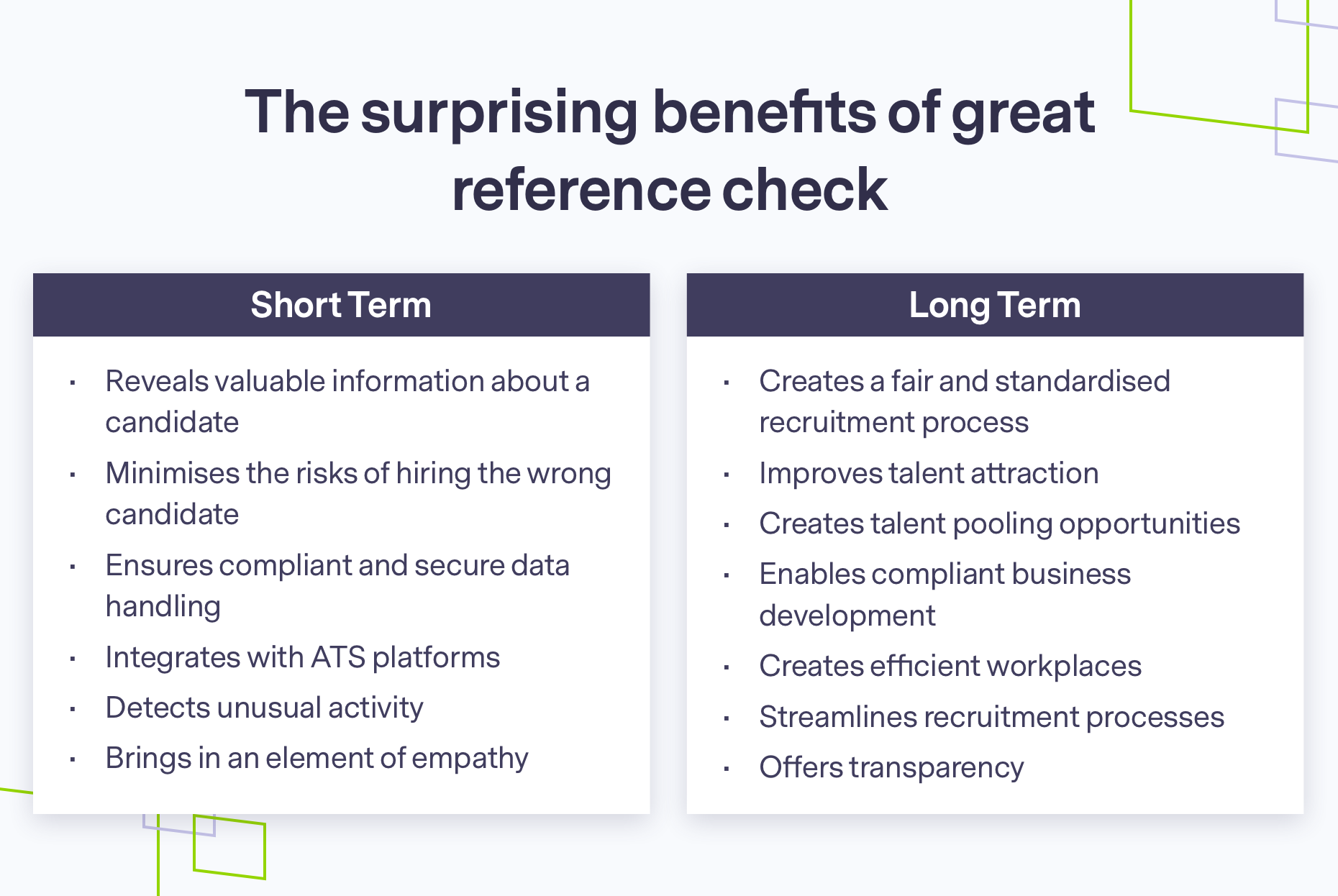Reference Checks
What is Reference Checks?
Definition:
Reference check automation refers to the utilization of technology and streamlined processes to automate and improve the reference-checking stage of the recruitment process. This involves leveraging tools, software, and artificial intelligence (AI) to efficiently gather insights from a candidate’s previous employers, colleagues, or other professional contacts.
Analogy:
Imagine reference check automation as a meticulous investigator working alongside recruiters. Similar to how an investigator would thoroughly gather information, assess credibility, and provide valuable feedback, reference check automation tools systematically collect and analyze references, offering a comprehensive view of a candidate’s professional background.
Further Description:
Reference check automation involves incorporating technology into the reference-checking process, encompassing activities such as:
Automated Reference Requests: Streamlining the process of sending reference requests to previous employers or professional contacts through automated tools.
Data Analysis: Utilizing AI to analyze the information obtained from references, extracting relevant insights about a candidate’s skills, work ethic, and overall performance.
Standardized Evaluation: Implementing standardized reference evaluation criteria to ensure consistency and objectivity in the assessment of candidates.
Efficient Feedback Gathering: Automating the collection of feedback from multiple references simultaneously, expediting the reference-checking timeline.
Why is Reference Check Automation Important?
Validity and Reliability: Automation ensures a systematic and standardized approach, enhancing the validity and reliability of reference checks by minimizing human biases.
Time Efficiency: Automated reference checks significantly reduce the time and effort required to gather and analyze feedback, allowing recruiters to make informed decisions more promptly.
Consistency: Standardized evaluation criteria promote consistency in the reference-checking process, ensuring that each candidate is assessed against the same set of parameters.
Risk Mitigation: Thorough reference checks help mitigate the risk of hiring candidates who may not be a good fit for the organization, providing a more comprehensive understanding of a candidate’s professional history.
Examples and Usage:
Reference Check Software: Specialized software that automates the reference-checking process, allowing recruiters to send requests, track responses, and analyze feedback efficiently.
Automated Reference Check Surveys: Tools that facilitate the creation and distribution of automated reference check surveys, enabling recruiters to gather detailed insights from references.
Integration with Applicant Tracking Systems (ATS): Seamless integration with ATS to automate the reference-checking workflow, ensuring a cohesive recruitment process.
Key Takeaways:
- Reference check automation promotes a more reliable and valid assessment of a candidate’s professional background.
- Automation streamlines the reference-checking process, saving time for recruiters and accelerating the overall hiring timeline.
- Standardized evaluation criteria contribute to a consistent and objective reference-checking process.
- Thorough and automated reference checks help organizations mitigate the risk of hiring candidates who may not align with their expectations.





